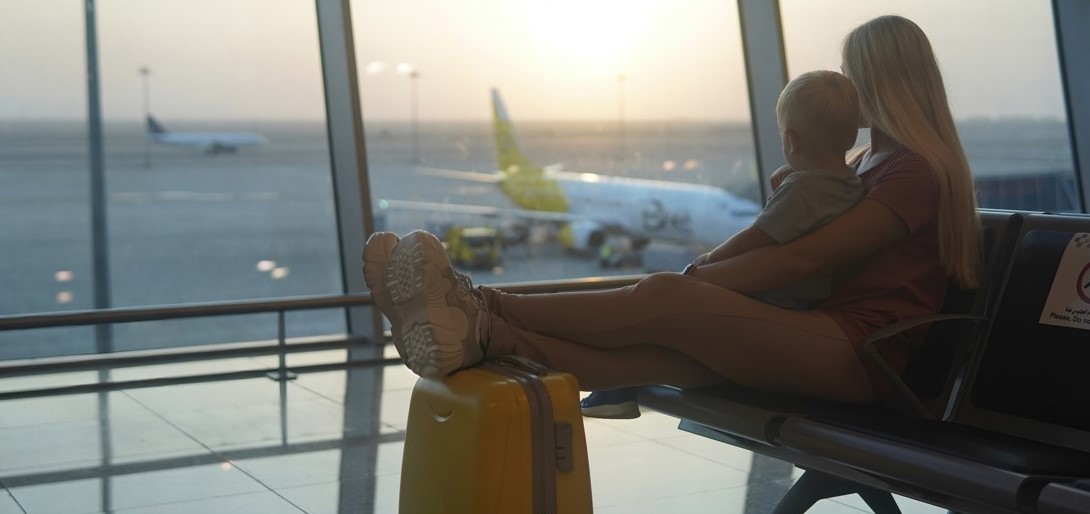By Alice Cabrelli
Hong Kong, 11 July 2022: The ongoing exodus of residents from Hong Kong is well documented, with our government’s tough anti-pandemic policies serving as a significant driver. This city’s net outflow of people was more than 140,000 for the first half of the year, amounting to 1.9% of the population, and the trend shows no sign of abating.
Departing Hong Kong permanently is a major decision for any individual or family, but it becomes more complicated for parents who are separated or divorced. If one person leaves while their former partner stays, the fate of their children becomes a primary issue.
Broadly speaking, children of separated or divorced parents fall under the jurisdiction of the Family Court, which sets out arrangements for custody, care and control, and access. It is common for such orders to include directions that the child cannot be taken out of Hong Kong without the consent of the other parent and/or the Court’s permission. If both parents agree to the relocation, the Court’s approval is usually straightforward.
However, removing a minor from Hong Kong becomes problematic if one of the parents is opposed to it. The relocating parent is required to file an application to the Family Court seeking permission for the relocation. They will need to provide a realistic, detailed and well-researched proposal, including their reasons for applying, intended location, living arrangements, schooling and healthcare.
The Court will also expect to know the applicant’s personal plans. For example, do they have a job in their destination country and how will they support the child? Is the applicant in a new relationship and what are the arrangements regarding that?
Other factors such as close proximity to extended family will also be considered, plus the suitability of the new neighbourhood and environment, and planned activities for the child. As well, access arrangements for the parent staying in Hong Kong, so the child can continue to have a relationship with them, are crucial. The Court will need to be convinced that the reasons for relocating are genuine and not selfish or with the intention of excluding the other parent from the child’s life.
The opposing parent will, of course, be given the opportunity to state their reasons for being against the child’s relocation. Again, are they opposing the application for selfish reasons, or is the opposition driven by a genuine concern for the child’s welfare? The Court will take into account the effect on the child of reduced access to this parent. It will also consider the consequences should the relocation application be dismissed.
At all times, the Family Court will place highest importance on the best interests of the child, as opposed to the rights or wishes of the parents. It is worth noting as well that there is no presumption in favour of the so-called primary carer, that is, the parent with whom the child normally stays.
In assessing child relocation issues, the Hong Kong courts continue to lean on a landmark case, Payne v Payne [2001] EWCA Civ 166, decided by the UK’s Court of Appeal some 21 years ago. In this matter, the judges dismissed an appeal by a British father to prevent his estranged wife, who was from New Zealand, relocating to her homeland with their young daughter. The Court determined that the welfare of the child was always paramount.
The position in Hong Kong was confirmed by the Court of Appeal four years ago in ZJ v XWN [2018] 3 HKLRD 644, where a mother was refused leave to appeal against an order granting permission for a father to permanently remove their child to Australia. The appeal judges took the opportunity to reiterate that the best interests of the child must come first. They said guidance provided by previous cases or any relevant welfare checklist were “simply tools to assist a family judge in making the multi-factorial assessment to reach a result which is in the best interest of the child after taking account of the potential impacts on the parents”.
In summary, of course it is best for all parties if the parents can agree on a child’s relocation and associated arrangements for access. It is also worth stressing the serious consequences if a parent attempts to remove a child from Hong Kong without permission. As detailed in the Child Abduction and Custody Ordinance (Cap 512), this city is a signatory to the Hague Convention on the Civil Aspects of International Child Abduction, which protects children from wrongful removal and establishes civil procedures to ensure their prompt return.
Whatever the position of the parents, we strongly recommend seeking legal advice before relocating a minor from Hong Kong. Here at Boase Cohen & Collins, we have a team of legal professionals with considerable experience in Family Law, divorce and separation, custody of children and related matters.
Alice Cabrelli joined BC&C in 2012 and has been a Partner since early 2021. Her key areas of practice include Family Law, Divorce and Separation, Child Custody and Financial Applications, and Civil and Commercial Litigation. She can be contacted at alice@boasecohencollins.com.



